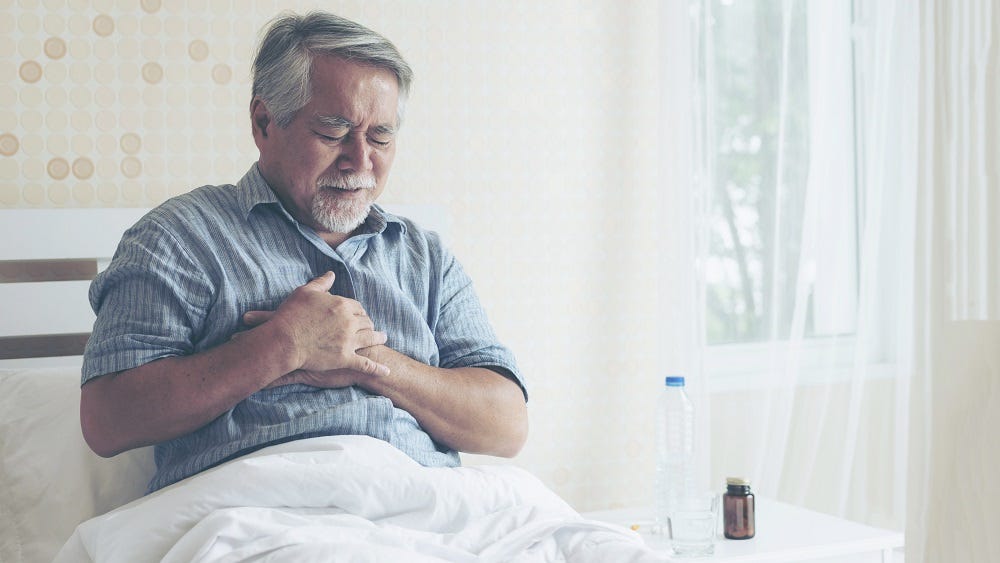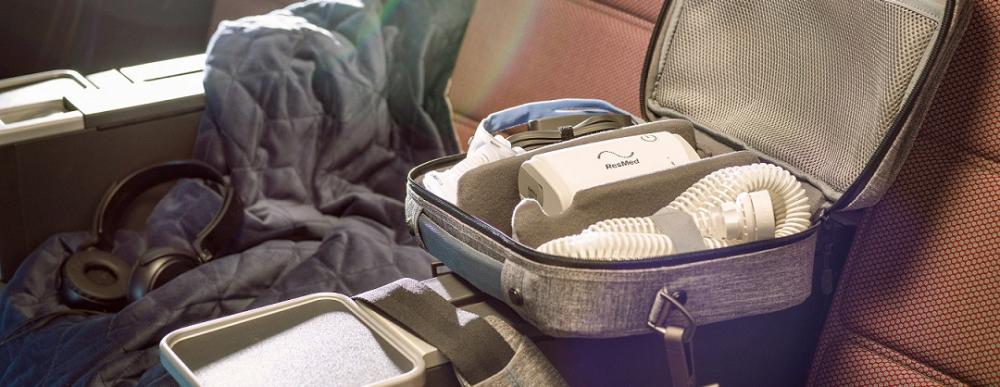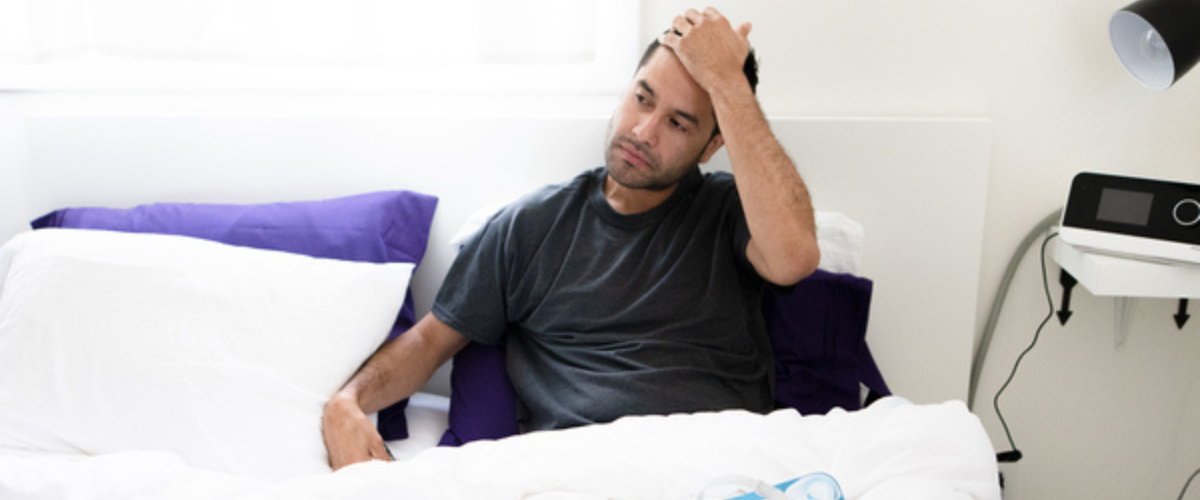If you’re reading this, you probably suspect that you or someone you love may have obstructive sleep apnea (OSA). You know sleep apnea symptoms can affect quality of life, but is it really all that serious?
The shocking truth is that research has shown untreated sleep apnea is linked to an increased risk of death from all causes. You may hear different answers about this because the question “Can you die from sleep apnea?” is not the same question as “Can sleep apnea kill you?”
Today we’ll take a look at what science says about both questions, as well as what to look out for and when to talk to your doctor.
Can You Die From Sleep Apnea?
Many sleep apnea patients wonder if their OSA could cause them to suffocate in their sleep. If you’ve experienced apnea firsthand it can certainly feel that way! But while all types of sleep apnea can be life threatening, it is extremely unlikely that you would suffocate to death from an apnea event itself.
During an obstructive apnea event, the tissues in your upper airway collapse and cause you to stop breathing. This lowers your blood oxygen levels and triggers your body to release stress hormones, forcing you to wake up and breathe again before you can suffocate.
However, just because you are unlikely to die from sleep apnea itself doesn’t mean sleep apnea can’t kill you.
Can Sleep Apnea Kill You?
The same process that wakes you up during an apnea event also causes a rapid spike in heart rate and high blood pressure, putting you at a higher risk of heart attack, stroke, hypertension, and heart failure.
In fact, according to a study by the Yale School of Medicine, having sleep apnea increases your risk of heart attack or dying by 30% over a four-to-five year period.
Other studies have shown that severe sleep apnea predicted an 81% increase in sudden cardiac death, and that your risk of stroke increases by 6% for every point in your AHI.


But the most shocking result of all comes from a follow-up of a study called the Wisconsin Sleep Cohort, which found that severe sleep apnea was “significantly associated with a 3-fold increased all-cause mortality risk [.]” In other words, severe OSA makes you three times more likely to die from any cause.
It’s obvious how OSA could increase your risk from health problems like heart disease, but how can it increase your risk of death from outside causes? Consider that the symptoms of sleep apnea aren’t just physical, but mental, too. Mental impairment from daytime fatigue also increases your risk of workplace injury, traffic accidents, and even suicide.
Yet despite these increased risks, and the ease of finding treatment options, that same follow-up estimates that at least 75% of people with sleep apnea are still undiagnosed.
Signs of Sleep Apnea and When To See a Doctor
Recognizing sleep apnea can be difficult because it happens when you’re asleep. The most common way that people begin to suspect OSA is by recognizing one or more of the following symptoms:
- Loud snoring
- Waking up choking or gasping for air
- Frequently waking to dry mouth or sore throat
- Frequent morning headaches
- Excessive daytime sleepiness
- Mood changes and irritability
- Difficulty concentrating
- Weight gain
When it comes to sleep disorders, any amount of disruption of your waking life is reason enough to talk to a healthcare professional. Your doctor or sleep specialist will likely recommend taking a sleep study, which can be done in-lab or even in the comfort of your own home.
If the study finds that you have sleep apnea, your doctor will more than likely prescribe a CPAP machine. CPAP therapy, or continuous positive airway pressure, uses a stream of airflow to keep your airways open so that you can breathe while you sleep.
CPAP is considered the first line of defense against OSA because it’s both effective and non-invasive. But if the fear of being tied to a CPAP machine has kept you from getting tested, you should know that there are other ways to treat sleep apnea, including oral appliances, positional therapy, and surgery. Your treatment options depend on the type and severity of your sleep apnea, as well as any other health issues or risk factors you may have, so talk to your sleep medicine provider about your preferences and concerns.
No matter which treatment you choose, CPAPsupplies.com is there for you. From CPAP machines and masks to custom-fit oral appliances and positional sleep aids, we’ve got everything you need to get a good night’s sleep. Don’t let concerns about whether sleep apnea can kill you keep you up one more night!






